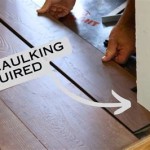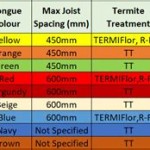A Comprehensive Guide to Wood Flooring Installation: Step-by-Step
Enhancing your home's beauty and functionality requires thoughtful renovation projects. One such undertaking is installing wood flooring, a classic choice that exudes warmth and elegance. However, embarking on this project requires meticulous preparation and execution. This guide will provide you with a step-by-step breakdown of the essential aspects of wood flooring installation, ensuring a flawless outcome.
1. Preparation & Acclimation:
Before diving into the installation process, it's crucial to prepare the substrate and allow the flooring to acclimate to its new environment. Remove any existing flooring and check the subfloor for levelness and moisture. Install an underlayment to cushion the flooring and reduce noise. Acclimate the wood flooring by storing it unopened in the room where it will be installed for several days. This allows the wood to adjust to the temperature and humidity, minimizing potential problems later on.
2. Establishing a Layout & Pattern:
Planning the layout and pattern of your wood flooring is essential for a visually appealing outcome. Determine the direction of the planks, considering the room's shape and the flow of light. Popular patterns include parallel, herringbone, and chevron. Use chalk lines or a layout tool to mark the starting point and ensure straight lines throughout the installation.
3. Starting the Installation:
Begin by laying the first plank along the shortest wall, ensuring it is aligned with the chalk line. Tap each plank into place using a tapping block and hammer. Apply a small amount of wood glue to the tongue and groove joints for added strength. Continue installing planks row by row, alternating the starting side to create a staggered pattern.
4. Expanding and Fitting:
As you install the flooring, you may encounter areas where expansion gaps are required. Leave a small gap (1/4 inch) around the perimeter of the room to allow for wood movement. Use a pry bar and a scrap piece of wood to gently pry under the planks and create the necessary space. This prevents buckling or warping during seasonal changes.
5. Trimming & Cutting:
To fit the flooring around obstacles such as doorways and walls, trimming and cutting are necessary. Measure the distance carefully and use a circular saw or miter saw to make precise cuts. Ensure the cuts are made against the grain to minimize splintering. Install transition strips or moldings where the flooring meets other surfaces, such as tile or carpet.
6. Nailing or Stapling:
Once the flooring is laid out, it's time to secure it to the subfloor. Use a flooring nailer to drive nails through the tongue of each plank at an angle into the subfloor. Alternatively, you can use a staple gun to staple the flooring in place. Drive the nails or staples at regular intervals to ensure a firm hold.
7. Refinishing & Protection:
After the flooring is installed, it's ready for refinishing. Sand the surface to smooth out any inconsistencies. Apply a stain or sealant to enhance the natural beauty of the wood and protect it from wear and tear. A polyurethane topcoat provides added resistance to scratches and stains.
Conclusion:
Installing wood flooring requires precision, attention to detail, and a commitment to quality. By following these steps, you can transform your home's interior with a stunning and durable flooring solution. Remember to take your time, work meticulously, and enjoy the process of creating a beautiful and functional space.

Hardwood Flooring Installation Step By Forbes Home

Guide How To Install A Solid Hardwood Floor

How To Install Hardwood Floors A Step By Guide Floorings

Wooden Flooring Installation A Step By Guide
:strip_icc()/101206833-2e499ef612434b6b8ab6e5b62422a78f.jpg?strip=all)
How To Install Hardwood Floors

Step By Guide On How To Install Hybrid Flooring Parrys

How To Lay Engineered Timber Floor Guide Fantastic Handyman Au

Laminate Flooring Installation A Step By Guide
:strip_icc()/101206834-206cd78cd20a45c5b6bbb5747b29f1a4.jpg?strip=all)
How To Install Hardwood Floors

Step By Installation Guide For Wood Floor Tiles
See Also







